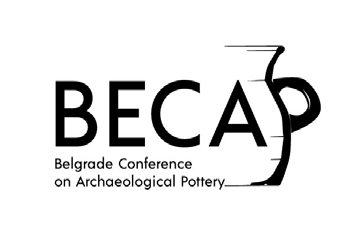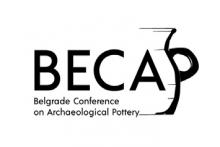
Belgrade Conference on Archaeological Pottery (BECAP) is an international biennial conference aiming at gathering specialists from the field of pottery studies.
Follow the conference on
Youtube
Facebook
Twitter
In 2021 it will focus on food processing, preparation, and consumption. Food/drink processing and preparation have been in focus of pottery studies for several decades, especially after the development of laboratory methods which enabled the identification of foods/drinks
prepared, and reconstruction of technological traits related to intended use of pots. Instead of focusing on archaeometric analyses, however, BECAP 20 is aimed to address the topics related to pottery use and consumption based on archaeological evidence:
* spatial analysis of pottery distribution and the identification of activity zones related to food/drink preparation, storage, and consumption;
* social dimensions of food/drink processing and consumption based on pottery: individual vs. communal consumption, every-day vs. consumption during special occasions; the identity (group, gender, status) of „cooks“ and consumers/users of pots;
* analyses of quantitative data (vessels’ sizes and frequencies) in order to make estimations on the number of users/consumers and population size, as well as to assess vessels’ dimensional classes, as indicators of individual/group/communal usage of pots within the specific assemblage;
* use-alterations as markers of vessels’ use and function;
* indicators of extended use of pots, as a consequence of (low) intensity of production or as an expression of special „values“ of the pots related to their function or use(rs);
* methodological approaches in pottery analysis related to the above-mentioned issues; the development of methodology dealing with highly fragmented assemblages would be of special interest.
The contributors are invited to address some of the following issues:
* case studies of wide chronological and geographical span dealing with spatial analyses, analyses of quantitative data, and/or considerations about vessels’ function;
* theoretical-methodological contributions related to pottery function and food/drink preparation and consumption;
* ethnoarchaeological case studies and experiments designed and conducted to resolve the issues related to pottery use and food/drink preparation.
[excerpt from the Call for abstract]



